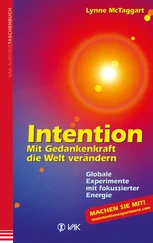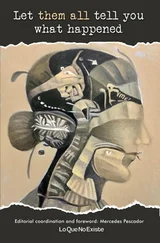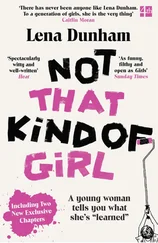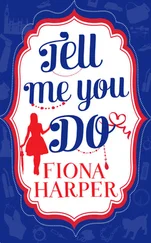Title Page
Copyright
Praise for What Doctors Don’t Tell You
Dedication
Introduction
Part I: medicine’s False Science
Chapter 1: The Un-science of Modern Medicine
Part II: Diagnosis
Chapter 2: Diagnostic Excess
Chapter 3: Prenatal Testing: Dead Certainty
Chapter 4: Catching It Early
Part III: Prevention
Chapter 5: Crazy about Cholesterol: Medicine’s Red Herring
Chapter 6: Vaccination: Knee-jerk Jabs
Chapter 7: Hormonal Mayhem
Part IV: Treatment
Chapter 8: Miracle Cures
Chapter 9: Dental Medicine: Safe until Proven Dangerous
Part V: Surgery
Chapter 10: Standard Operating Procedure
Chapter 11: Gee-whizz Technology: The Video-games Wizard and Blocked-drains Mechanic
Part VI: Taking Control
Chapter 12: Taking Control
Keep Reading
Index
Further Resources
Acknowledgements
About the Author
Notes
Also by the Author
About the Publisher
For Bryan
This book was born from a grand passion I once had: a passion to get better.
In the early eighties, after an extraordinary patch of bad choices, I underwent a prolonged bout of stress. In every profoundly important area of my life, green lights I’d always taken for granted suddenly began turning red. If I had taken one of those little tests you find in women’s magazines that add up your stress quotient – with death, marriage, divorce and moving the most stressful situations – my sums would have leapt off the chart.
In rapid succession I’d struggled under an impossible book deadline, married Mr Wrong, divorced Mr Wrong, bought the wrong flat, accepted the wrong job, suffered the death of a close friend, incurred several large debts, and spent a prolonged period of intense isolation in a foreign country. I couldn’t, in those days, even get a good haircut.
Shortly after emerging from the eye of this personal squall, I began to experience strange symptoms, at first your workaday ‘female problems’ – everything from ferocious premenstrual tension and irregular periods to cystitis and almost constant vaginal infections.
As time wore on, my symptoms multiplied: eczema, hives and allergies to a load of food and chemicals; diarrhoea and an irritable bowel; insomnia and night sweats; and severe depression. I had felt powerless for so long that my body seemed to be reacting in parallel, caving in under any sort of microbial onslaught.
For nearly all of the three years that I was ill, I made the rounds of medical circles – first the standard ones, then the periphery, with nutritionists and homoeopaths, and finally the very outer rim, from breathing specialists to Bioenergeticists. By the autumn of 1986 I was hacking my way though the dense thicket of New Age therapies. I tried breathing from the abdomen. I had the negative emotions Rolfed out of me. Somebody tried to diagnose me by subjecting my hair sample to radio waves. I ploughed through autogenic training, colonic irrigation and even a form of psychotherapy – a mixture of Wilhelm Reich and what felt like being tickled on the face. I learned something about my relationship with my mother. But I did not, at any point, get better.
By the summer of 1987 a sense of hopelessness descended over me. The worst part of being chronically unwell without a diagnosis legitimatizing it is that a lot of people don’t believe you, or view your symptoms as imaginary – as a puerile sort of attention-getter. And in this land of stoics, if your illness isn’t hard-core, like cancer or leprosy, you’re supposed to learn to live with it, to dysfunction quietly, without complaint.
At some point it began to dawn on me that there was no miracle remedy out there that was going to turn my health around. If I was going to get better, I was going to have to take charge of the entire process myself – from diagnosis to, possibly, even the cure. Somehow I would have to figure out what was going wrong with my body and find whatever tools were necessary to cure myself. It began to make sense that I should take control of my health, since no one else would care about its outcome so passionately.
I began reading up on allergies and female problems, and one day came upon a newly discovered illness whose symptoms matched almost every one of mine. When a specialist I consulted wasn’t familiar with it, I searched out a renowned GP specializing in allergies and nutritional medicine, whose battery of tests and diagnostic sensitivity confirmed my own suspicions, and rooted out other contributory problems besides.
What I seemed to have inside me was, essentially, thrush of the body, or polystemic chronic candidiasis. Candida albicans is a yeast that lives in the upper bowel of most of us without doing good or harm, kept in line by our immune systems and the friendly bacteria that coexist with it. But, according to current theories (and that’s all they are at the moment), when the immune system is weakened and the good-guy bacteria fall in numbers, these yeast can start multiplying out of control, sending out toxins that eventually interfere with a range of bodily functions.
Whether or not candida was the main cause of my illness, the root of the problem appeared to be an immune system that wasn’t functioning at full throttle. Prolonged severe stress tends to have a depressant effect on the immune system. That, and a bunch of long dormant allergies, including an allergy to wheat, which probably came to the fore as a result of stress, meant that I was poisoning my body every day with substances it could no longer tolerate. I’d also become sloppy about my diet, and was low in a large number of nutrients.
My treatment consisted of taking large doses of a well-tolerated drug for a time, plus a batch of specially tailored doses of supplements and a restrictive healing diet of fresh, unrefined food. A month after I’d started, my dry cleaner asked me if I’d had a face lift.
However good these initial results, I soon realized that getting better wasn’t going to be an overnight affair. For a year healing became, in effect, my career. Fortunately I had teamed up with an extraordinary doctor, and we worked together as a partnership in recovering my health, and with it, my sense of control. That year was heady and instructive, with plenty of opportunities to meditate on the science and art of healing, as well as the nature of the doctor-patient relationship. It seemed to me that patients were more likely to get better, so long as they were in charge of the decision-making about their care. True healing could only begin if there existed a dialogue between doctor and patient, a democracy of shared responsibility. I also experienced first-hand that people can get well without drugs and surgery, just by altering what they eat and how they live. Healing isn’t simply a matter of finding the right drug or right operation, but a complex process of accepting responsibility for your own life.
This personal experience stirred up dormant memories that had affected me deeply early in my career. As a young journalist in New York, I had headed the editorial department of the Chicago Tribune – New York News Syndicate. There I’d met the late Dr Robert Mendelsohn and helped to launch his column ‘The People’s Doctor’ in the mid-seventies. As former medical director of a national programme for underprivileged children, and chairman of a state licensing committee for doctors, Mendelsohn had been entrenched in the very heart of the American medical establishment. Nevertheless, here was this kindly, mild-mannered man, your prototypical Jewish grandfather, blowing the whistle on all his peers by denouncing medicine as excessive and unproven. Every week his column would savage yet another medical sacred cow. Most famously, it was Bob who likened medicine to the new religion. ‘Medicine’, he wrote, ‘is not based on science – it’s based on faith.’
Читать дальше
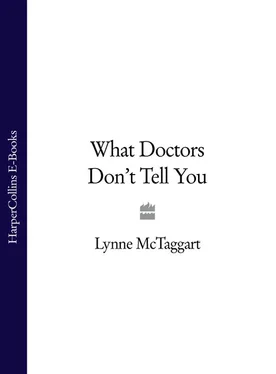
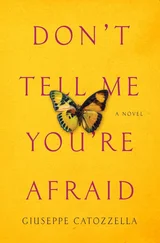


![Ally Carter - [Gallagher Girls 01] I'd Tell You I Love You But Then I'd Have to Kill You](/books/262179/ally-carter-gallagher-girls-01-i-d-tell-you-i-lo-thumb.webp)
